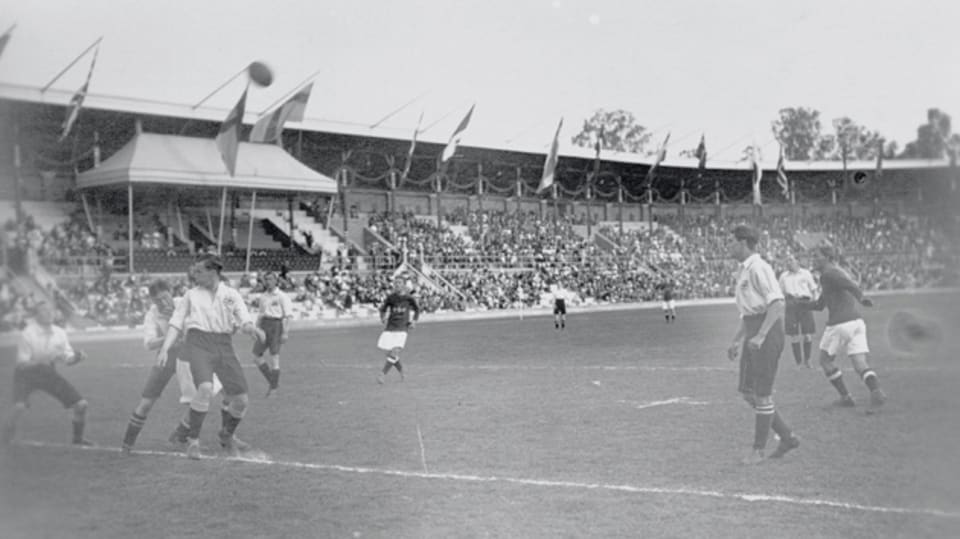Woodward captains British to another football gold
Although football was making its fourth appearance at the Olympic Games in Stockholm, it was only the second occasion that its involvement had been recognised by FIFA, the sport’s governing body. Eleven teams competed in 1912, all of them from Europe.

Four years previously, Great Britain had come out on top, beating Denmark 2-0 in a gold medal match. The winning side’s captain was Vivian Woodward, a centre-forward, who was a prolific scorer for Tottenham Hotspur at the time. An architect by profession, Woodward was known as an intelligent player whose skills belied a rather lightweight frame. He was described by the Sporting Chronicle as having “a subtle craft tucked away in his toes”. It continued: “Woodward is a great initiator, the personification of unselfishness, is quick to grasp the ever-changing situation of the game, and, above all, is very cool."
Having scored three goals at the 1908 Games, Woodward was again entrusted with the England captaincy in Stockholm. By now he had switched his club allegiances to another London club, Chelsea, and, at 33, was perhaps slightly past his peak.
England’s campaign began with a 7-0 defeat of Hungary on 30 June in front of 8,000 spectators at the Olympic Stadium. Although Woodward scored Great Britain’s third goal after threading his way through the Hungarians’ defence, the hero was Harold Walden – who scored the other six! The semi-final against Finland, held at the same venue two days later, was not quite as straightforward, but there was still little doubt about the outcome after Walden and an early own goal had put Great Britain 2-0 up inside seven minutes. Walden added a third with 13 minutes to play but there was still time for Woodward to make his own contribution, scoring with a fine header in the 82nd minute to put the seal on a 4-0 victory.
Just as in 1908, the final was contested against Denmark. The Danes had come through matches against Norway and the Netherlands in similarly impressive fashion to the British, scoring 11 times and conceding just once. It promised to be an entertaining battle for the gold. Some 25,000 were in attendance this time as Walden scored again early on before Gordon Hoare converted another two for Great Britain, either side of a Danish goal from Anthon Olsen. When Arthur Berry, like Woodward a veteran of the 1908 side, put the team 4-1 up just before half-time, the outcome was effectively sealed – and a late second goal for Olsen was to no avail.
The Danes had, admittedly, been hampered by a first-half injury that led to their playing nearly two-thirds of the match with 10 men. Although he had not made it onto the scoresheet in the final, Woodward had skippered a team to two successive football gold medals.
Woodward’s football career would soon draw to a close – he fought in World War One, although continued to play briefly after it. He had also been a keen tennis player and twice reached the final of England’s Lawn Tennis Championship. He later turned his back on architecture and became a farmer, also serving as an air raid warden during World War Two.
